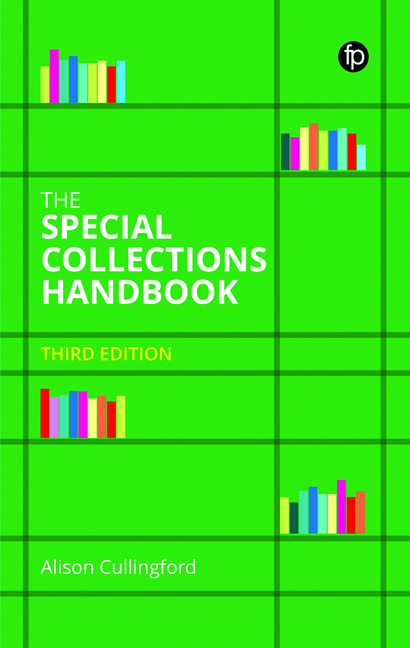Book contents
7 - Legal and Ethical Issues in Special Collections
Published online by Cambridge University Press: 28 April 2022
Summary
Introduction
Legal and ethical concerns emerge in every aspect of Special Collections work and are among the most important, difficult and sensitive areas of practice. If not managed effectively, there can be serious consequences for individuals, their employers and the wider society on whose behalf we are caring for these collections.
This book covers legal and ethical matters as they arise in context. In this chapter I focus on the areas of law that are most commonly encountered in Special Collections and the ethical issues of greatest concern.
This chapter covers:
1 Basics of legal and ethical issues in Special Collections.
2 Copyright and intellectual property.
3 Privacy, confidentiality and data protection.
4 Freedom of information and openness.
5 Contested heritage and cultural property.
6 Introducing decolonisation.
7 Equality, diversity and inclusion.
8 Health and safety, including mental health.
9 Suggestions for further reading and useful websites.
Introducing law
Note that legislation varies:
• by country: however, as Special Collections reach worldwide audiences, librarians will find that learning about the laws of other countries helps them understand the mindsets of overseas users and publishers
• by sector: many parent organisations are regulated by statute, e.g., national libraries and cathedrals, and some legislation applies only to some sectors, e.g., charities or businesses
• over time.
Space requires this chapter to concentrate on general points about law and Special Collections. The sources at the end of the chapter will help readers to find more detail and stay updated.
A reminder: the author is not a lawyer and offers these suggestions to assist in practical management. Libraries are advised to seek expert advice before taking action that may have legal consequences.
Legislation can be highly complex, especially copyright law, to the extent that it can be hard to be sure whether an action is legal or not! How can librarians cope with these challenges? By building effective policies and practices, managing risk and collaborating with others in and outside their sector.
Reflecting on ethics
Legal and ethical issues are closely connected. All the legislation mentioned in this chapter relates to ethical concerns, including public domain, privacy, etc. Laws are created to enforce appropriate behaviour, which can be a matter of ethics. But ideas about ethics may evolve more quickly than can be captured by legislation.
- Type
- Chapter
- Information
- The Special Collections Handbook , pp. 165 - 186Publisher: FacetPrint publication year: 2022



